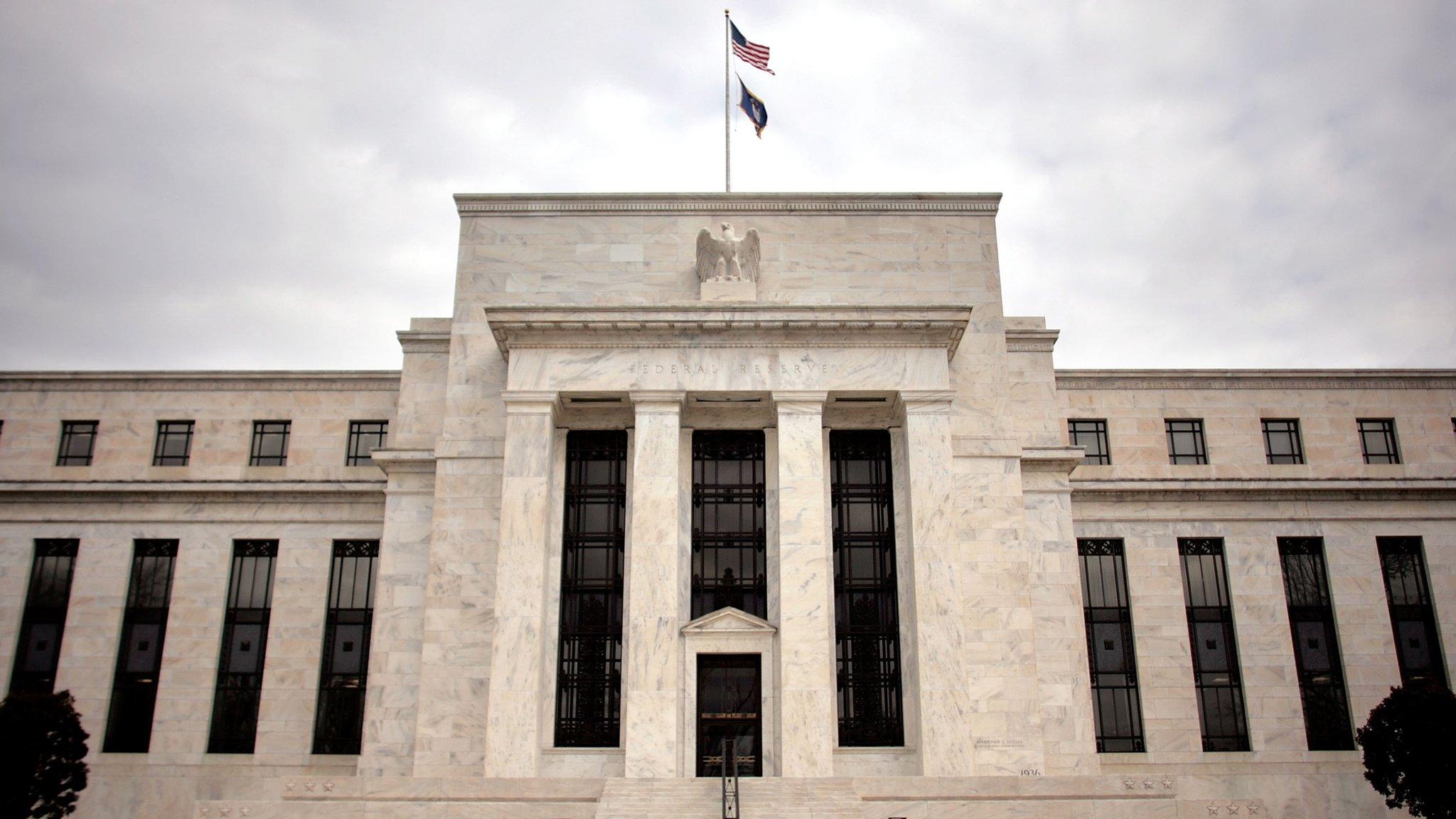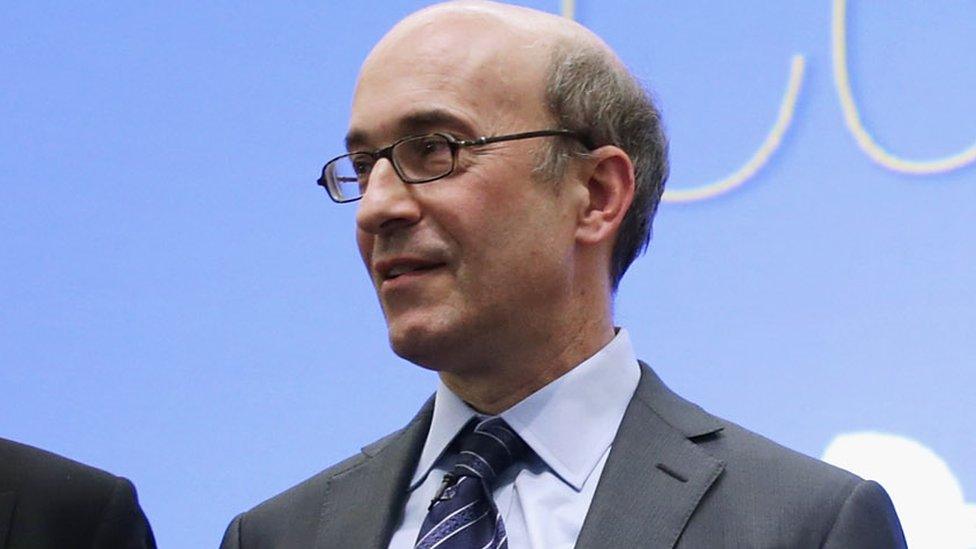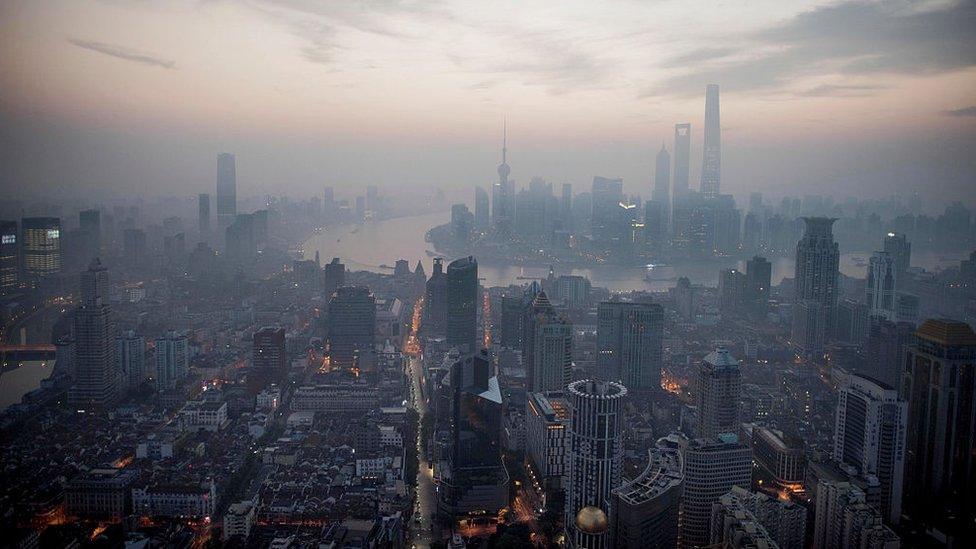China's central bank raises interest rates after Fed rise
- Published

It's the first time China has raised rates since March
China's central bank has followed the US Federal Reserve by raising interest rates, in a move that has surprised economists.
The People's Bank of China lifted its 7-day and 28-day reverse repurchase agreements by 5 basis points.
This essentially represents a modest rise to borrowing costs and is the first rate hike since March.
Beijing is attempting to limit the flow of capital out of the country without harming economic growth.
In addition to short-term borrowing rates, China also increased rates on its one-year medium-term lending facility by 5 basis points.
China described the move as a "normal market reaction" to steps taken by the Federal Reserve.
The US central bank raised rates by 0.25% on Wednesday, its third rate rise this year.
The Fed said the move, which was widely expected, underscored "solid" gains in the US economy.
The decision to raise the cost of borrowing takes the Fed farther away from the ultra-low rates it put in place during the financial crisis to boost economic activity.
Against that backdrop, China is attempting to limit capital flowing out of the country in search of stronger returns.
But Bank of Communications analyst Chen Ji told Reuters the rate raise was too small to have much meaningful impact.
"(It) doesn't really impact borrowing costs, and fluctuations of this level are very normal in the interbank market," he said.
The Hong Kong Monetary Authority also raised its base rate after the US hike. Hong Kong tracks Fed rate moves because its currency is pegged to the US dollar.
- Published13 December 2017

- Published9 August 2017

- Published17 July 2017
